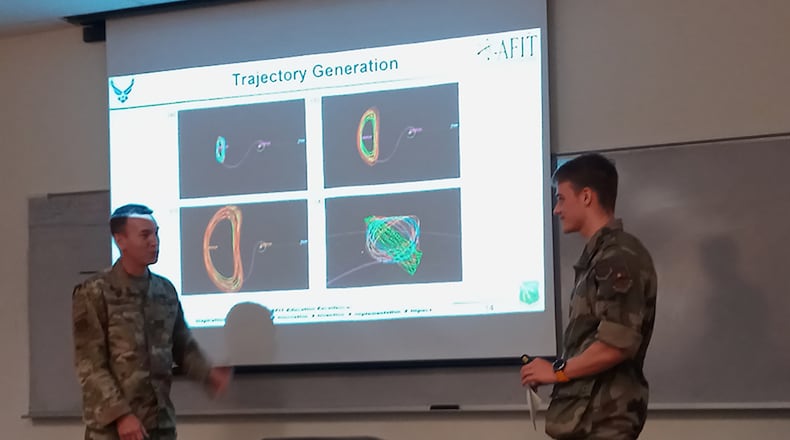A Lagrange point is the balancing of gravitational forces of two large bodies, such as the Earth and Moon.
Other challenges associated with the mission included identifying the cislunar environment, or the region of space between the geosynchronous Earth orbit and the Moon. Macé's research identified and concluded that deterioration from radiation exposure was low, as well as the threat to natural space debris and interplanetary dust. Due to the unstable nature of L3, natural space debris will not collect and pose a risk to orbiting satellites.
Through the use of Systems Tool kit, or STK, a software application for analyzing and visualizing complex systems for a mission, Macé determined various L3 orbit designs for the CubeSat through various calculations and trial scenarios.
“Learning how to use STK and understanding the orbits around the Lagrange point were challenging at first, but I enjoyed working on STK and think it’s a great tool for sending something to space,” said Macé.
One major benefit of the international collaboration was the ability to continue a dialogue with a fellow NATO member for space systems design, development, and testing. The collaboration also supports the United States Space Force’s “evolved and expanding partnerships” established in the “Chief of Space Operations’ Planning Guidance,” by Gen. John “Jay” Raymond in November of 2020.
In relation to the center, the internship reflects the Air Force’s recent emphasis on creating and maintaining diversity by bridging international cultures to create a collaborative work environment.
“Lt Macé performed exemplary during his time at AFIT, and the results of his research will advance AFIT’s current CubeSat development efforts intended to ‘teach space by doing space,’” said Maj. Robert Bettinger, CSRA deputy director.
The Air Force Institute of Technology, or AFIT, located at Wright-Patterson Air Force Base is the Air Force’s graduate school of engineering and aims to be the student’s first choice for advanced academic education and career-long professional continuing education.
For additional information about graduate or post-doctoral degrees in astronautical engineering or space systems, please visit the CSRA website at https://www.afit.edu/CSRA/ , call 937-255-6565, ext. 4753 or email Jaclyn.knapp.ctr@afit.edu.
About the Author
